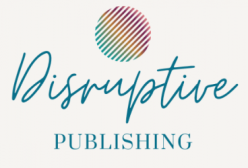
Writing a self-help book was something I had wanted to do for many, many years but I didn’t know what I wanted to write about or how to go about writing it?
I was on a perpetual personal development journey, and I’d journaled daily most of my life – pages and pages every day – but there was never one particular theme or area that I wrote about that I thought I could develop into a book. At least I couldn’t see it.
I had so many questions about writing a book. ALL. THE. TIME. Where would I start? How would I know what to write about? How would I get it published? Who would want to read my book?
I agonised over it for so many years before I finally wrote a book and published it and shared it with the world, and I know so many more people who live with the same angst that I lived with of wanting to write that book.
If you are feeling this, then read on because this week’s blog is for you…
What exactly is a self-help book and why would someone write one?
A self-help book provides guidance, advice, and strategies for personal growth, self-improvement, and overcoming challenges. They generally aim to help readers address various aspects of their lives such as relationships, career, mental health, spirituality, and overall well-being but there is no limit to what you might cover in a self-help book.
Self-help books typically offer insights and practical techniques based on the author’s experiences, research, or expertise in a particular field. They often provide step-by-step instructions, exercises, case studies, and real-life examples to assist readers in applying the concepts and principles outlined in the book to their own lives.
The topics covered in self-help books can be diverse and range from general life skills, motivation, and productivity to more specific areas such as mindfulness, resilience, communication, goal-setting, and personal finance.
Some self-help books focus on specific target audiences, such as parents, entrepreneurs, students, or individuals seeking to improve specific aspects of their lives.
Self-help books can be written by professionals in fields such as psychology, coaching, counselling, or personal development, as well as by individuals who have personal experiences or stories to share. They aim to empower readers by offering insights, tools, and perspectives that can inspire personal reflection, growth, and positive change.
It’s important to note that while self-help books can be valuable resources, they are not a substitute for professional advice or therapy in cases where individuals require specialized support for mental health issues or other significant challenges.
Some of the reasons why someone might write a self-help book include:
Personal Growth and Reflection: Writing a self-help book can be a transformative and introspective process for an author. It allows us to delve deep into our own experiences, challenges, and lessons learned. The act of organising our thoughts and sharing our personal journeys can contribute to our own personal growth and development.
Sharing Knowledge and Expertise: Many of us authors have acquired knowledge, skills, or expertise in a particular area that we believe can benefit others. As well as a genuine desire to help others overcome similar challenges and improve their lives. Writing a self-help book allows us to share our insights, strategies, and advice with a wider audience.
Making a Positive Impact: Authors of self-help books often have a genuine desire to make a positive impact on the lives of their readers. We really do hope that our book will inspire, motivate, or provide practical guidance that can lead to personal transformation for another person. Helping others achieve their goals, find happiness, or navigate difficult situations can be a deeply rewarding experience.
Fulfilling a Passion for Writing: Writing a self-help book allows us to combine our love for writing with their desire to help others. It provides an outlet for our creativity and allows us to express our ideas and perspectives in a meaningful way.
Building a Personal Brand or Business: Writing a self-help book can be a strategic decision for those of us who want to establish ourselves as authorities or experts in our field. It can help us build credibility, gain visibility, and attract opportunities such as speaking engagements, consulting, or coaching. A well-received self-help book can serve as a powerful marketing tool for personal branding or promoting a business.
Legacy: Some authors just love the idea of creating something that will continue to have a lasting and positive impact on people for many years to come.
Motivation can vary from author to author, and often multiple reasons do coexist.
So how would someone go about writing a self-help book?
- Define Your Topic
Determine the specific area of self-help you want to focus on. Identify the problem, challenge, or theme you want to address in your book. Clarify your unique angle or perspective that will differentiate your book from existing literature.
2. Conduct Research
If you don’t already have a deep enough knowledge and understanding of your topic, then do some more research. Read books, articles, and research studies related to your subject matter. Explore different perspectives, methodologies, and success stories that can support and enrich your book.
3. Outline Your Book
Create a detailed outline that outlines the structure of your book. Break it down into chapters or sections and decide what information or concepts will be covered in each. Consider the logical flow and progression of ideas. This outline will serve as your roadmap while writing.
4. Develop Your Content
Start writing the content based on your outline. Begin with the chapters that you feel most comfortable or passionate about. Share your insights, strategies, and advice in a clear and concise manner. Use examples, stories, and real-life experiences to illustrate your points and engage readers.
5. Provide Actionable Steps
Offer practical advice and actionable steps that readers can take to apply your teachings to their lives. Include exercises, prompts, or worksheets to facilitate self-reflection and personal growth. Make sure the actions you recommend are achievable and measurable.
6. Write in a Reader-Friendly Style
Use clear and accessible language to make your book easily understandable. Avoid excessive jargon or technical terms unless necessary and provide explanations when using them. Write in a conversational tone to connect with readers on a personal level.
7. Edit and Revise Your Book
Once you have completed your initial draft, review and edit your manuscript. Focus on clarity, grammar, and coherence. Ensure that your ideas flow smoothly and that your writing effectively communicates your message. Consider seeking feedback from beta readers or hiring a professional editor for an objective perspective.
8. Consider Your Publishing Options
Decide how you want to publish your book. You can explore traditional publishing by seeking literary agents or publishers who specialize in self-help books. Alternatively, you can self-publish through platforms like Amazon Kindle Direct Publishing or other self-publishing services.
I hope this has been helpful. Writing a self-help book takes time, dedication, and perseverance but if you are dedicated to helping others you will achieve your goal and you will make a difference.
If you would like some inspiration and some support while you write your book, join us in the 30-Day Book Writing Challenge.
You can take 30 days or 30 weeks to write your book. It is entirely up to you how fast you work but we’ll give you some structure and guidance to get you started and then we’ll keep you company on your journey.
Register here now: Book Writing Challenge
